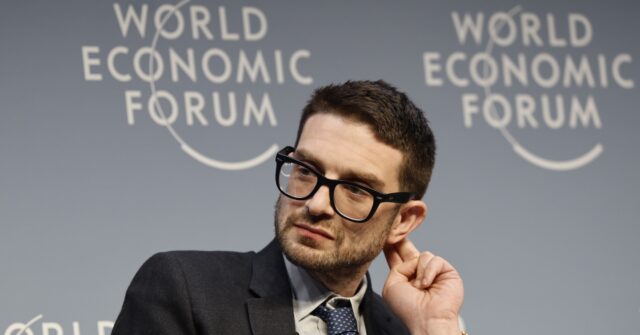Democrat mega-donor Alex Soros has expressed enthusiastic support for reports indicating that outgoing U.S. President Joe Biden has approved the use of American-made long-range missiles by Ukraine to target objectives within Russia. This decision allegedly marks a significant shift in Biden’s previous cautious stance regarding military escalation in the conflict, particularly concerns that empowering Ukraine with such advanced weaponry could heighten tensions with Russia, a nuclear superpower. Media outlets including the New York Times, Washington Post, and Wall Street Journal cited unnamed U.S. officials in their reporting on this development, suggesting that this move comes just two months before Biden leaves office.
Soros, who chairs the Open Society Foundations and is the son of influential philanthropist George Soros, took to social media platform X to celebrate this reported decision, labeling it as “great news.” His public endorsement aligns with his long-standing advocacy for Ukraine’s resilience against Russian aggression and reflects a broader commitment to support military efforts against the Kremlin. Soros has also engaged in partnerships with organizations close to Ukrainian President Volodymyr Zelensky’s administration, showcasing his family’s longstanding involvement in Ukraine’s socio-political landscape.
Since Ukraine gained independence, the Soros family has been a major player in fostering civil society in the country through initiatives funded by the International Renaissance Foundation (IRF), a Soros-affiliated organization based in Kyiv. The IRF has been prominent in providing financial support to numerous civil society groups in Ukraine, with over $230 million funneled into the country over the past decade. This investment has also included major projects such as the establishment of the National Public Broadcasting Company of Ukraine, underlining the Soros foundation’s significant role in shaping the media narrative and civic landscape in the region.
The influence of the Soros network in Ukraine is not without controversy. The Open Society Foundation has been credited with playing a pivotal role in the 2014 Euromaidan protests that led to the ousting of then-President Viktor Yanukovych. This political upheaval was catalyzed by Yanukovych’s decision to reject an association agreement with the European Union in favor of closer ties with Moscow, sparking widespread public dissent that ultimately changed the trajectory of Ukraine’s foreign policy and governance.
However, not everyone supports the prospect of Ukraine using American long-range missiles against Russian targets. Slovakian Prime Minister Robert Fico has openly criticized the potential escalation that could arise from this decision, cautioning that it might hinder ongoing peace negotiations touted by President-Elect Donald Trump. Fico’s warnings reflect a concern among certain stakeholders in Europe regarding the ramifications of further military involvement in a conflict that has already claimed countless lives and strained international relations.
In response to the rumored U.S. decision to allow missile strikes inside Russia, Russian Foreign Ministry spokesperson Maria Zakharova issued a stern warning, stating that if attacks were carried out, Russia would respond “appropriately and tangibly.” She emphasized that such actions would signify a deeper U.S. involvement in the conflict, marking a transformation in the nature of the war itself. This statement underscores the heightened tensions surrounding this issue and the delicate balance that exists in international diplomacy as major powers navigate this ongoing crisis.

